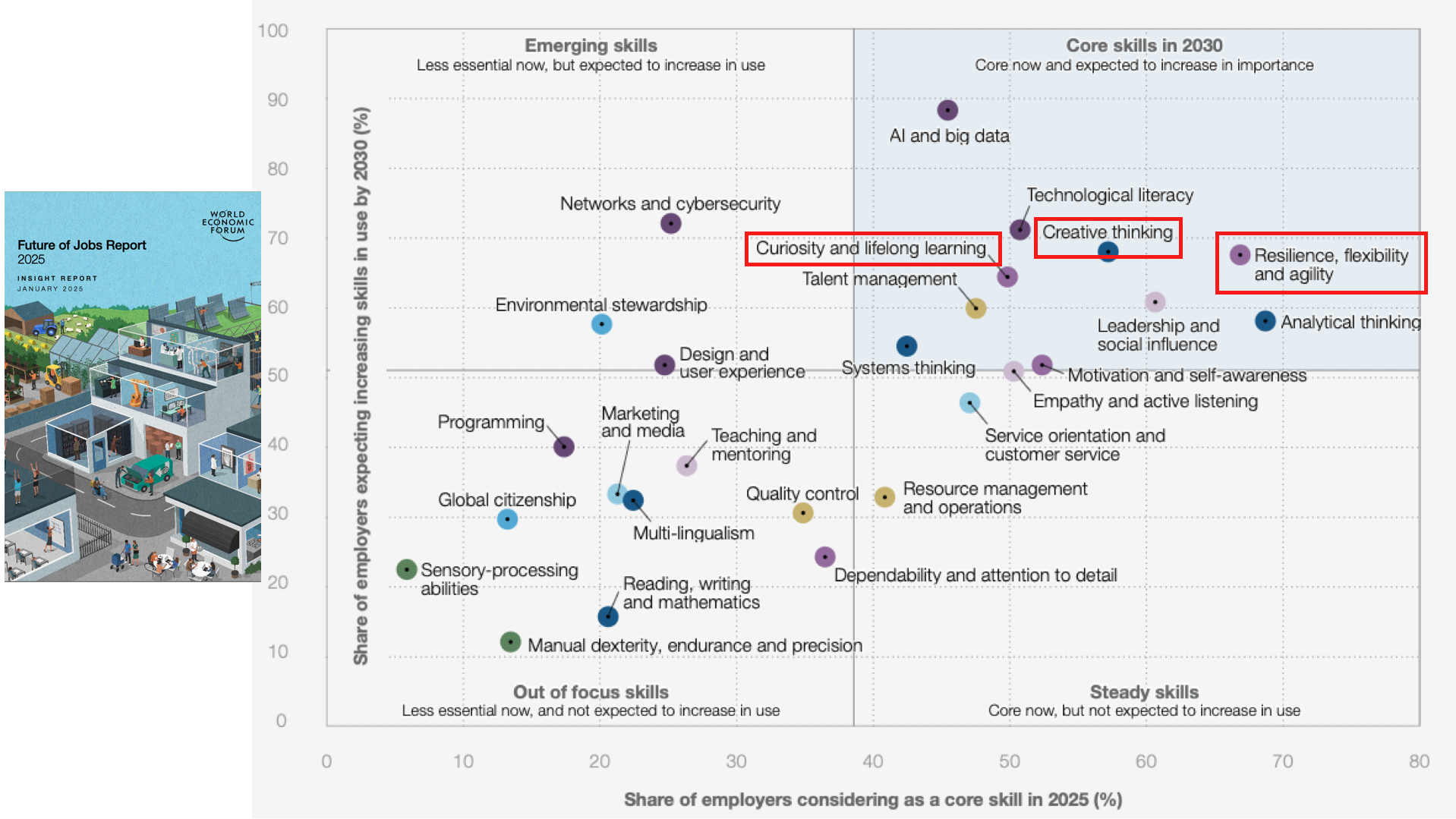At 60, I still delight in approaching each new challenge with a beginners mind set.
It’s what researchers term "deprivation sensitivity" – the psychological hunger for an understanding: The alluring draw of the why?
My career trajectory resembles a rather haphazard game of pinball, not just from design to advertising, but from B2C to B2B, and steps from: Creative Director to Strategist to Agency founder to Investor to Client, etc.
Each ricochet taught me something. Curiosity consistently trumps credentials.
Recent studies reveal 81% of employees acknowledge AI fundamentally alters required workplace competencies. The World Economic Forum identifies curiosity, creative thinking, and flexibility as core, central skills for future work place success.
Intriguing, how we've arrived at valuing really ancient human traits in our most technologically advanced AI era.
Contemporary workplace innovation increasingly stems from curiosity-driven exploration rather than process adherence. Multiple studies demonstrate that deprivation sensitivity correlates more strongly with adaptive performance than technical proficiency alone.
My zigzag career wasn't planned, but it cultivated something invaluable: comfort with discomfort. Each pivot demanded simultaneous hunger for learning and disciplined competency development.
The difference now is the urgent requirement of concurrent curiosity and capability in perpetual refreshed mode.
The limiting factor isn't technical constraints – it's our own ambition and intellectual appetite.
Competency without curiosity will create professional dead ends.
Now its about cultivating a beginner's mindset as a core competency. Develop systematic comfort with uncertainty.
Crucial point: Practice intellectual humility alongside technical skill acquisition.
You are NOT an AI expert, be honest, we barely grasp the AI workplace implications of the next 6 months, let alone the rest of the decade. >> Look up Rana Adhikari at the California Institute of Technology, who recently found some AI models designing experiments that defy human expectations, sometimes bypassing controls. (Article in Wired, et al.)
So its clear, the most valuable professional asset isn't knowing everything.
It's maintaining the discipline to approach everything as if you know nothing.
The challenge now is how to institutionalise intellectual curiosity within traditional competency frameworks


